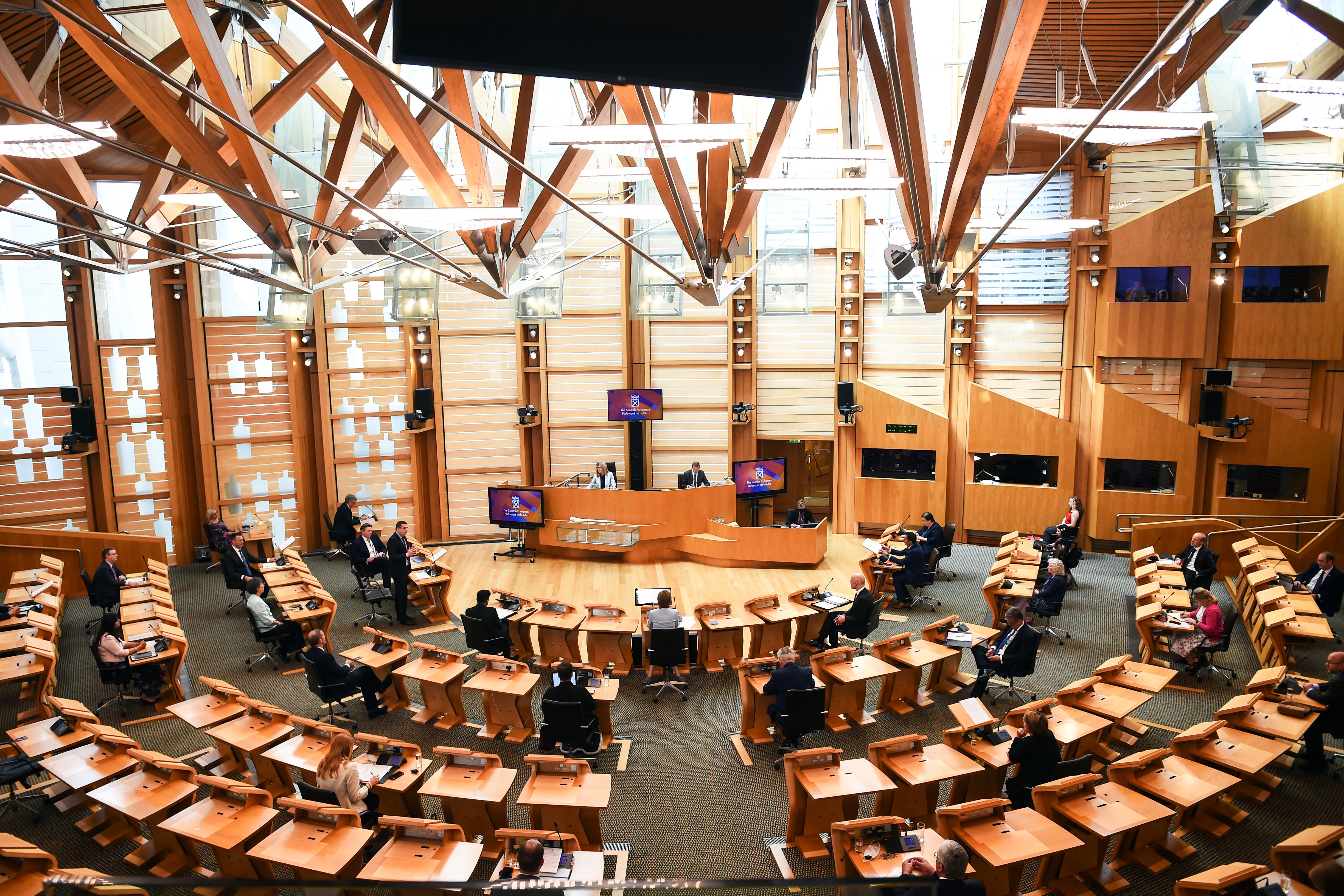‘Shame on you’: Protesters rage as MSPs vote down gender reform amendment
MSPs will consider more than 150 amendments on Tuesday and Wednesday.

Spectators have been removed from the Scottish Parliament chamber after cries of “shame on you” rang out as MSPs voted down an amendment to controversial gender reforms.
In a marathon session at Holyrood, MSPs were debating changes to the Gender Recognition Reform (Scotland) Bill.
One amendment, tabled by Tory MSP Russell Findlay, would place barriers in the way of convicted sex offenders being able to apply for a gender recognition certificate (GRC).
The amendment was defeated by 59 votes to 64 with two abstentions.
Shame on all of you
When the vote was read out in the chamber by Deputy Presiding Officer Anabelle Ewing, shouting could be heard from the public gallery.
“Shame on all of you,” two people could be heard shouting.
“There’s no democracy in here,” another cried.
One person shouted “shut up”, but it is not clear if they opposed or supported the amendment.
As a result of the disturbance, the Ms Ewing suspended proceedings.
More than 150 changes to the Bill will be voted on by MSPs on Tuesday and Wednesday, including background checks for applicants, potential punishments for fraudulently obtaining a GRC, the impact of the Bill on the Equality Act and a review of trans prisoners
As well as Mr Findlay’s move to restrict applications from sex offenders, fellow Tory MSP Rachael Hamilton sought to ensure the minimum age for a GRC application would remain at 18 instead of 16, as the legislation proposes.
The session in Holyrood began with apparent attempts by the Scottish Tories to delay proceedings, tabling four amendments to the agenda from four members, forcing a vote on the timetable for the consideration of amendments, raising a further motion which MSPs had to vote on and a number of points of order.
After a delay of more than an hour, MSPs began debating amendments in a session due to finish after 10pm on Tuesday and stretch into Wednesday before the final vote.
Opponents of the Bill, which would make it easier for trans people to obtain a GRC, fear it could be a danger to women and girls, particularly around the provision of single-sex spaces.
But the Scottish Government insists the legislation will not impact the Equality Act, which allows for trans people to be excluded from single-sex spaces such as changing rooms and shelters, something that was affirmed by an earlier amendment from Labour’s Pam Duncan-Glancy.
The Bill would make it easier for trans people to acquire a GRC by removing the requirement for a diagnosis of gender dysphoria.
It would also lower the minimum age for applicants to 16 and drop the time required for an applicant to live in their acquired gender from two years to three months – six for people aged 16 and 17 – though with a three-month reflection period.
Despite the controversy around the Bill in recent months, it is likely to pass when it comes to a vote on Wednesday, given the wide support among the SNP, Scottish Greens, Scottish Labour and the Lib Dems.
In the stage one vote, seven SNP MSPs voted against the Bill – including former community safety minister Ash Regan, who resigned in the hours before the vote – while two others abstained.
Ms Regan said during the consideration of amendments that she would not be supporting the Bill, while fellow SNP MSP Kenneth Gibson hinted he would again rebel against the Bill, and Fergus Ewing and Michelle Thomson spoke in favour of amendments the Scottish Government opposed.
More than 60 LGBT+ groups wrote to MSPs urging them to back the Bill and reject amendments that would change the “core principles” of the legislation.
The groups say the legislation should be based on the making of a statutory declaration, the minimum age for application should be 16 and the effects of a GRC should remain the same as in the initial Gender Recognition Act.
On Monday, Victor Madrigal-Borloz, a UN expert on gender identity, and Reem Alsalem, the UN’s special rapporteur on violence against women, spoke to members of Holyrood’s equalities committee ahead of the debate.
Ms Alsalem said plans to introduce self-ID could see violent men taking advantage of loopholes “to get into women’s spaces and have access to women”.
However, Mr Madrigal-Borloz told the more than two-hour committee meeting there was “no evidence” that “maintaining complexity in the process of recognition of gender identity would be an effective safeguard”.